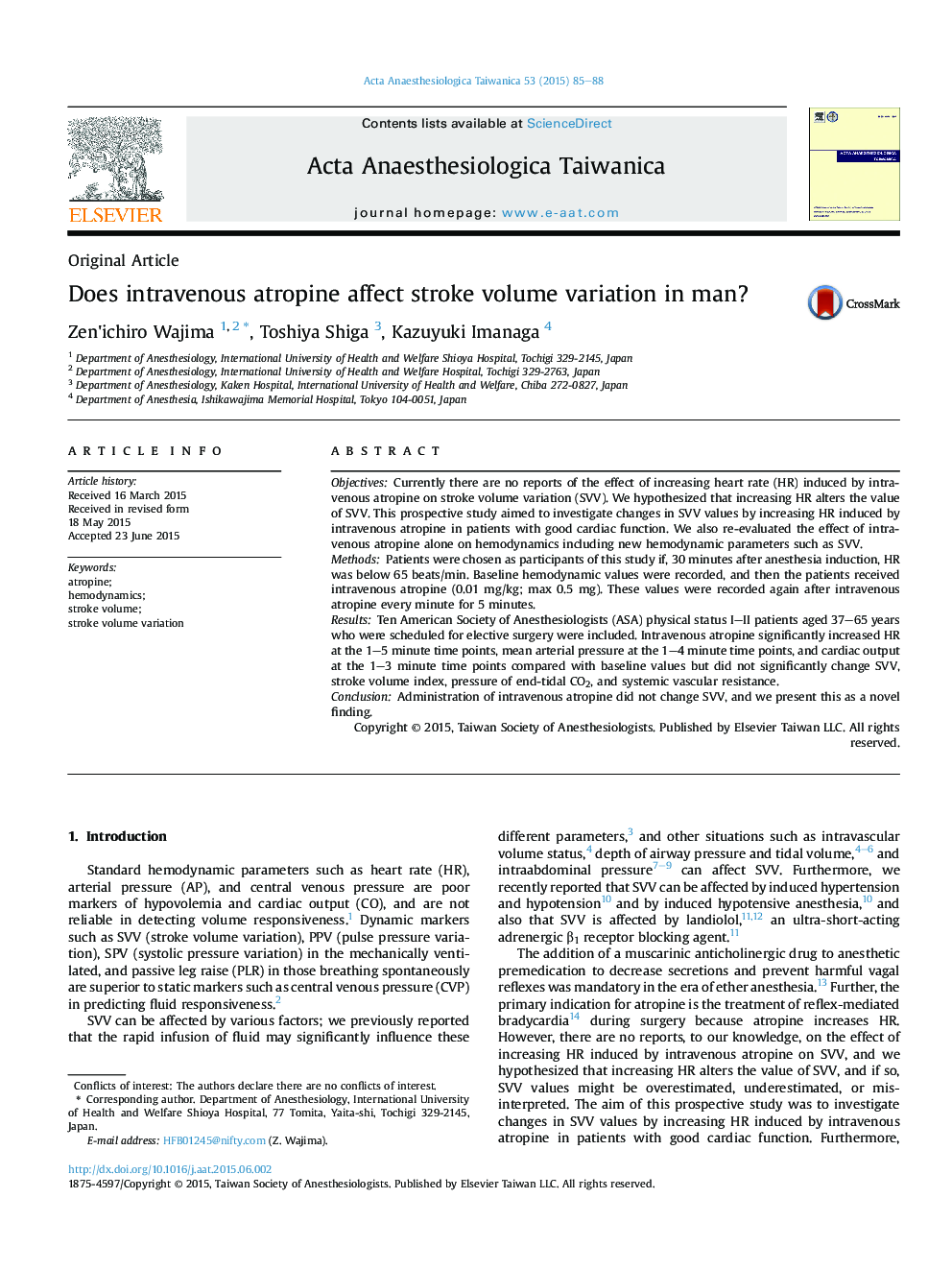| Article ID | Journal | Published Year | Pages | File Type |
|---|---|---|---|---|
| 2741417 | Acta Anaesthesiologica Taiwanica | 2015 | 4 Pages |
ObjectivesCurrently there are no reports of the effect of increasing heart rate (HR) induced by intravenous atropine on stroke volume variation (SVV). We hypothesized that increasing HR alters the value of SVV. This prospective study aimed to investigate changes in SVV values by increasing HR induced by intravenous atropine in patients with good cardiac function. We also re-evaluated the effect of intravenous atropine alone on hemodynamics including new hemodynamic parameters such as SVV.MethodsPatients were chosen as participants of this study if, 30 minutes after anesthesia induction, HR was below 65 beats/min. Baseline hemodynamic values were recorded, and then the patients received intravenous atropine (0.01 mg/kg; max 0.5 mg). These values were recorded again after intravenous atropine every minute for 5 minutes.ResultsTen American Society of Anesthesiologists (ASA) physical status I–II patients aged 37–65 years who were scheduled for elective surgery were included. Intravenous atropine significantly increased HR at the 1–5 minute time points, mean arterial pressure at the 1–4 minute time points, and cardiac output at the 1–3 minute time points compared with baseline values but did not significantly change SVV, stroke volume index, pressure of end-tidal CO2, and systemic vascular resistance.ConclusionAdministration of intravenous atropine did not change SVV, and we present this as a novel finding.
